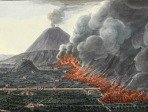 01:02:00
01:02:00
Vesuvius: volcanic laboratory or miracle of divine intervention?
Commentaries on Vesuvius have, for some two thousand years, see-sawed between observers' fascination with the phenomenon, as an inexplicable expression of the earth's inner force, and the relationship of the unpredictable mountain to a religious popu....
More details | Watch now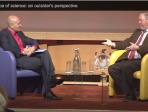 01:02:00
01:02:00
The importance of science: an outsider’s perspective
Award-winning author Bill Bryson speaks to Professor Jim Al-Khalili about his personal experiences and perspectives on science, from childhood and his school years, through to writing the highly successful 'A Short History of Nearly Everything' and e....
More details | Watch now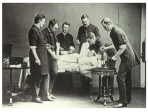 01:06:00
01:06:00
Staphylococcus aureus. The biography of a bug sometimes super, most often not
Thirty percent of us carryÊStaphylococcus aureusÊup our noses. Boils and infections after surgery bring it to our attention. Mutant clones are called MRStaphylococcus Aureus,ÊorÊMRSA. All these things make it important today.Ê Hugh Pennington CB....
More details | Watch now 01:00:00
01:00:00
Women’s work: Dorothy Hodgkin and the culture and craft of X-ray crystallography
The year 2014 was celebrated as the International Year of Crystallography. A number of successful 20th century women scientists, of whom the Nobel prizewinner Dorothy Hodgkin is perhaps the most prominent, achieved their distinction in this field. Wh....
More details | Watch now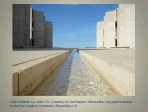 00:54:00
00:54:00
Francis Crick: anti-vitalist activist
In the course of his scientific career, Francis Crick changed research fields several times. In almost 30 years at the MRC Laboratory of Molecular Biology in Cambridge, he worked on protein crystallography, molecular genetics, developmental cell biol....
More details | Watch now 00:59:00
00:59:00
It’s magnetic resonance – but not as you know it
Magnetic resonance imaging (MRI) is routinely used in hospitals to image internal structure and blood flow within the human body. Research has shown that it is possible to harness these techniques to study non-biological systems, with many applicatio....
More details | Watch now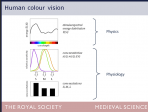 01:09:00
01:09:00
The medieval science of light: uncovering meaning with an interdisciplinary methodology
Can science today learn from thirteenth century literature? In the Durham Ordered Universe project, an interdisciplinary team (physicists, medievalists, Latin scholars and historians of science) has engaged with the great medieval English thinker Rob....
More details | Watch now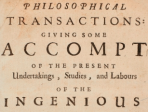 01:11:00
01:11:00
(Re)Inventing science publishing: the Philosophical Transactions of the Royal Society
Philosophical TransactionsÊis the worldÕs first and oldest scientific journal. Still published by the Royal Society, it is about to mark its 350th anniversary, and was instrumental in establishing many forms and facets of modern scholarly publishin....
More details | Watch now 01:08:00
01:08:00
The asymmetric Universe
Modern scientific theory describes a perfectly symmetrical Universe. A Universe in which matter is destroyed within an instant of its appearance and where nothing we now know could ever have happened. Human life itself seems to be lopsided, as the sp....
More details | Watch now 01:02:00
01:02:00
Sir Henry Bessemer FRS: a life and a legacy
This lecture aims to celebrate the bicentenary of the birth of Sir Henry Bessemer by reviewing his scientific and economic achievements in the context of his era, and also in terms of their ongoing impact on the world of today. As well as highlightin....
More details | Watch now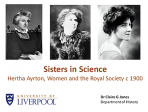 00:59:00
00:59:00
Sisters in science: Hertha Ayrton, women and the Royal Society c.1900
Although women were not admitted as Fellows until 1945, by the beginning of the twentieth century there were a number of female scientists working at the margins of the Royal Society and its masculine scientific elite. This talk will introduce some o....
More details | Watch now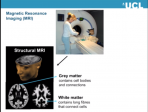 00:57:00
00:57:00
The teenage brain
Until recently, little was known about how the human brain develops. In the past 15 years, new technologies such as magnetic resonance imaging (MRI) have enabled us to gain insights into how the human brain changes across the lifespan. Research has d....
More details | Watch now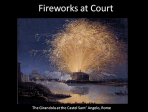 01:01:00
01:01:00
Incendiary science: fireworks at the Royal Society
In the seventeenth and eighteenth centuries, fireworks offered some intriguing possibilities for scientific research among the experimental philosophers of the Royal Society. What was the nature of fire? How did combustion work? Why did gunpowder exp....
More details | Watch now 01:15:00
01:15:00
Physicians, chemists and experimentalists: the Royal Society and the rise of scientific medicine, c. 1600-1850
The period 1600-1850 saw fundamental changes in how we understand natural processes. Chemistry and medicine especially moved away from classical ideas of 'balance' and 'vital properties' - such as fire and water - to understanding nature as an integr....
More details | Watch now 00:59:00
00:59:00
Everest, the first ascent: the untold story of the man who made it possible
The conquest of Everest by a British team in 1953 has always been celebrated as a triumph of heroic leadership, team work and courageous climbing, but the vital role that scientific innovation played in the success of the expedition has never been wi....
More details | Watch now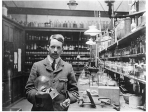 00:42:00
00:42:00
‘Sacrifice of a genius’: Henry Moseley’s role as a Signals Officer in WWI
Henry Gwyn Jeffreys Moseley (1887-1915) was one of the foremost English physicists of the early twentieth century. Probably best remembered for his immense contributions to chemistry and atomic physics in the years immediately prior to the outbreak o....
More details | Watch now 01:00:00
01:00:00
The Great Melbourne Telescope
A joint project of the Royal Society and the British Association, the Great Melbourne Telescope was the result of both technical and organisational innovation in the design and manufacture of a large telescope. At the completion of its construction b....
More details | Watch now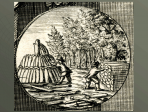 00:53:00
00:53:00
John Evelyn’s ‘Sylva’ and the origins of the modern sustainability discourse
The idea of sustainability has deep roots in practically all cultures of the world. The term itself, however, so familiar in today's global vocabulary, was shaped in the 17th century European discourse on timber shortage. Initiated by the newly-estab....
More details | Watch now 01:02:00
01:02:00
Winning and losing the fight against infectious diseases
Human infectious diseases will be eliminated and replaced by chronic ÒlifestyleÓ diseases as fertility falls, life expectancy increases, and populations grow older and wealthier. This is the standard story of the epidemiologic transition, but it is....
More details | Watch now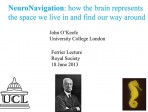 01:02:00
01:02:00
NeuroNavigation: how the brain represents the space we live in and finds our way around
Learning about new environments or locating ourselves in familiar environments are some of the most fundamental tasks that the brain performs. Information is not stored in response to biological needs such as hunger or thirst but on the basis of cogn....
More details | Watch now 00:47:00
00:47:00
From bench to bedside: KATP channels and neonatal diabetes
Whether you eat a whole box of chocolates or fast for the day, the pancreatic beta-cells ensure that your blood glucose level remains relatively constant by regulating the release of insulin from the pancreatic beta-cells. Diabetes results when insul....
More details | Watch now 00:44:00
00:44:00
Defining nature’s limits: Prosecuting magic in sixteenth-century Italy
Magic and science have traditionally been considered to have little in common. Yet for many sixteenth-century intellectuals, including churchmen, practising magic was based upon highly sophisticated knowledge of the natural world. For ecclesiastical ....
More details | Watch now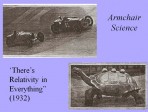 00:57:00
00:57:00
The popular reception of relativity in Britain
How did it feel to open a newspaper in November 1919 to be greeted by headlines about 'Light Caught Bending' and a 'Revolution in Space and Time'? Einstein's relativity reached a wide public audience in the context of social change. The theory's inte....
More details | Watch now 00:55:00
00:55:00
Iron from the sky: the potential influence of meteorites on ancient Egyptian culture.
Ancient Egyptian belief was frequently derived from observations of the natural world, where the gods were considered to control the forces of nature; and as a society, ancient Egyptians placed great value upon order and balance. So how would the app....
More details | Watch now
